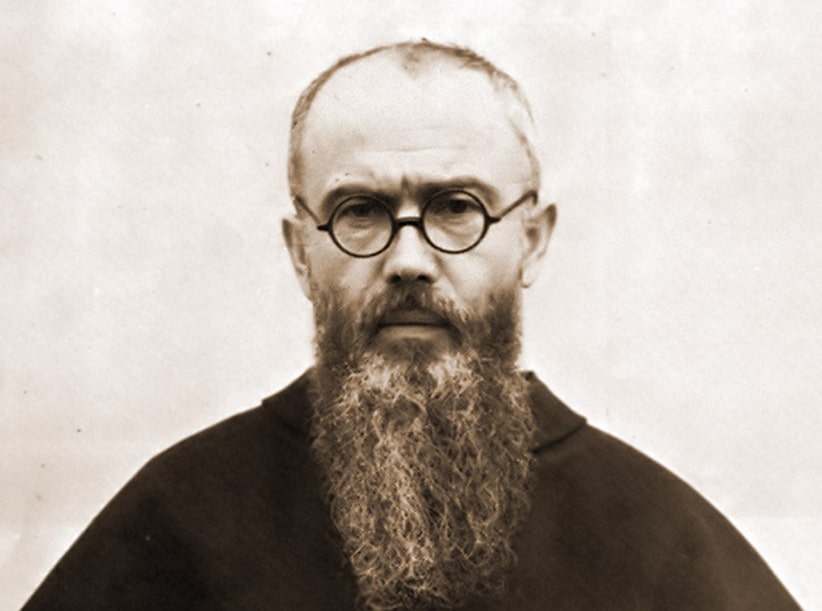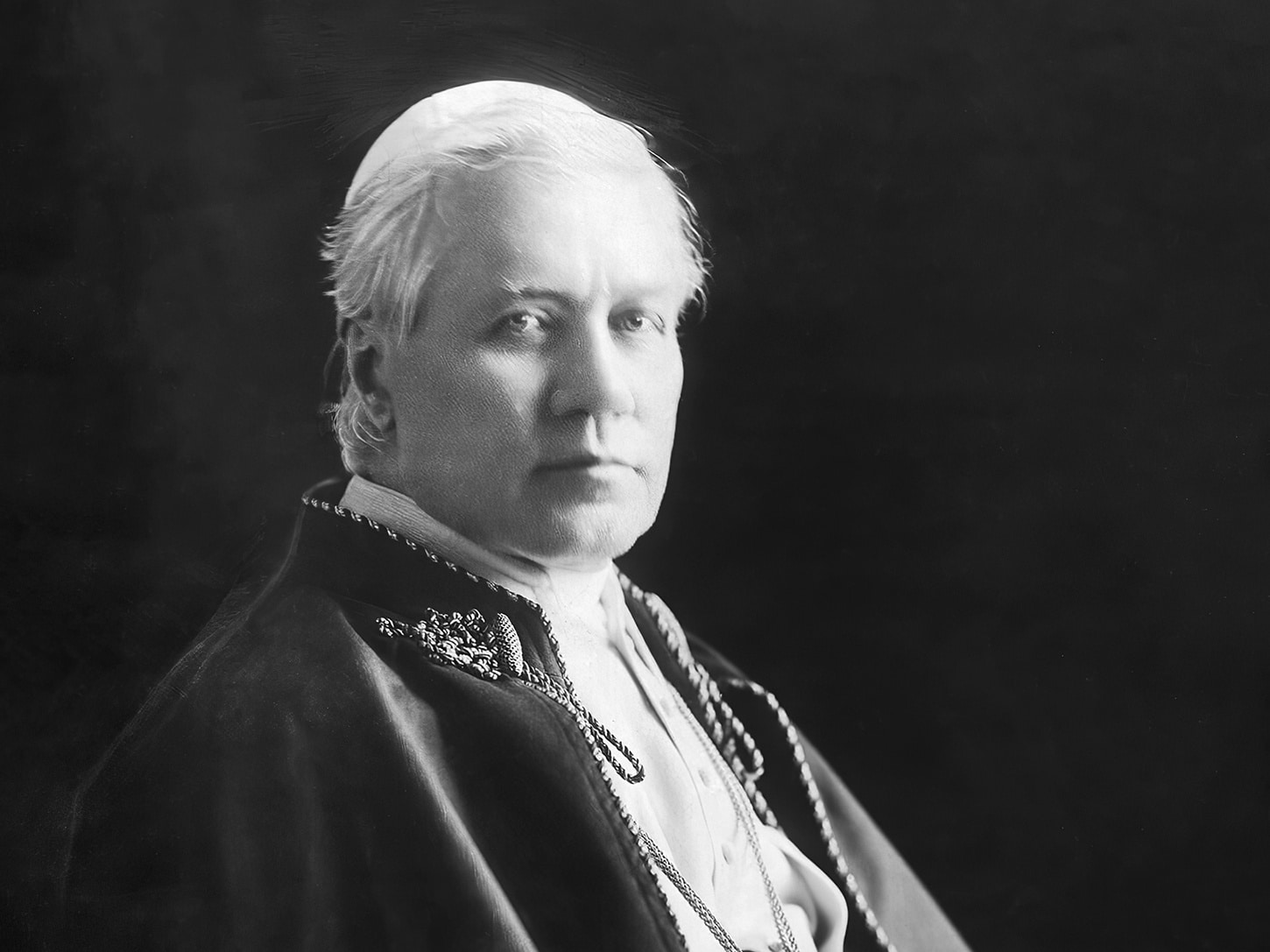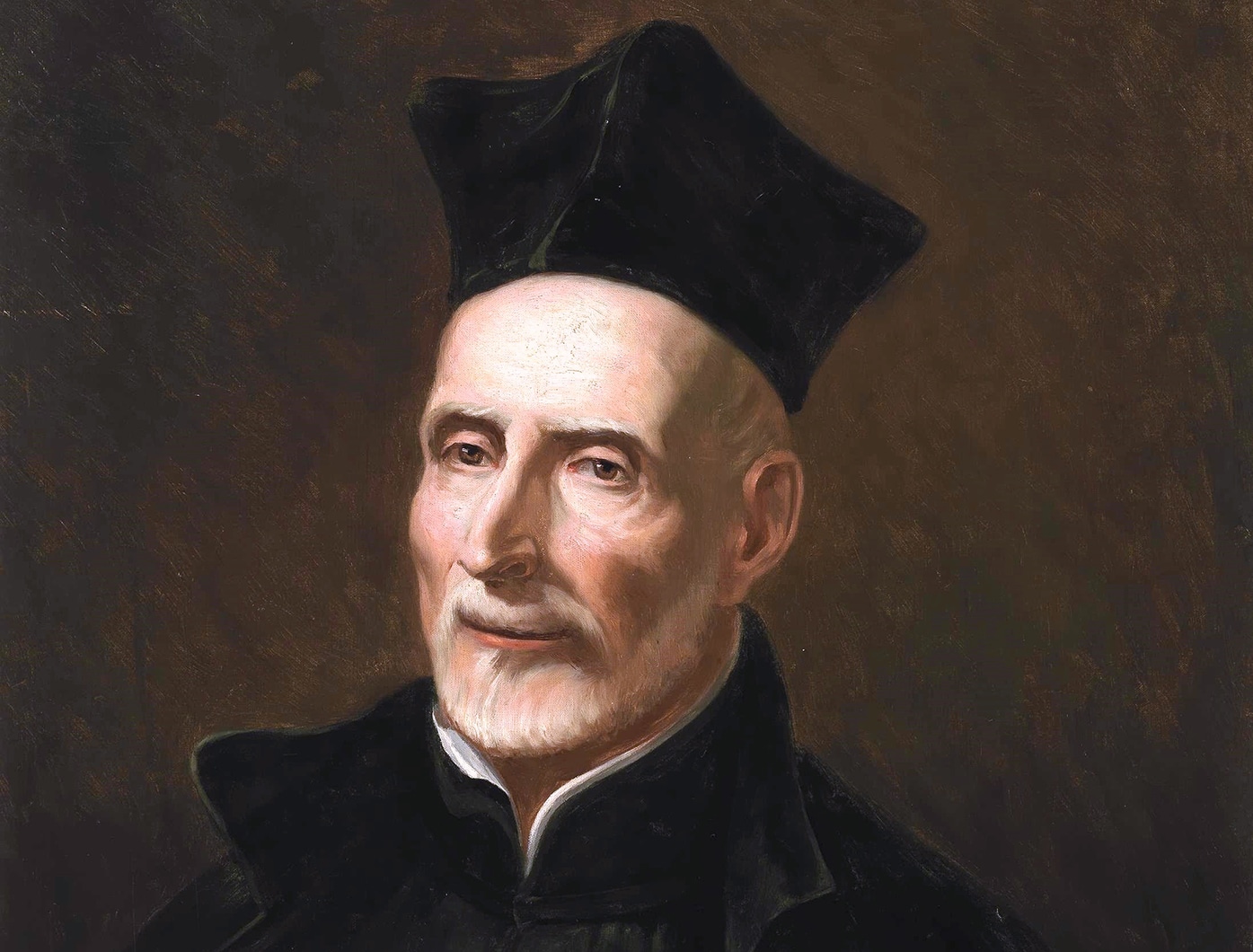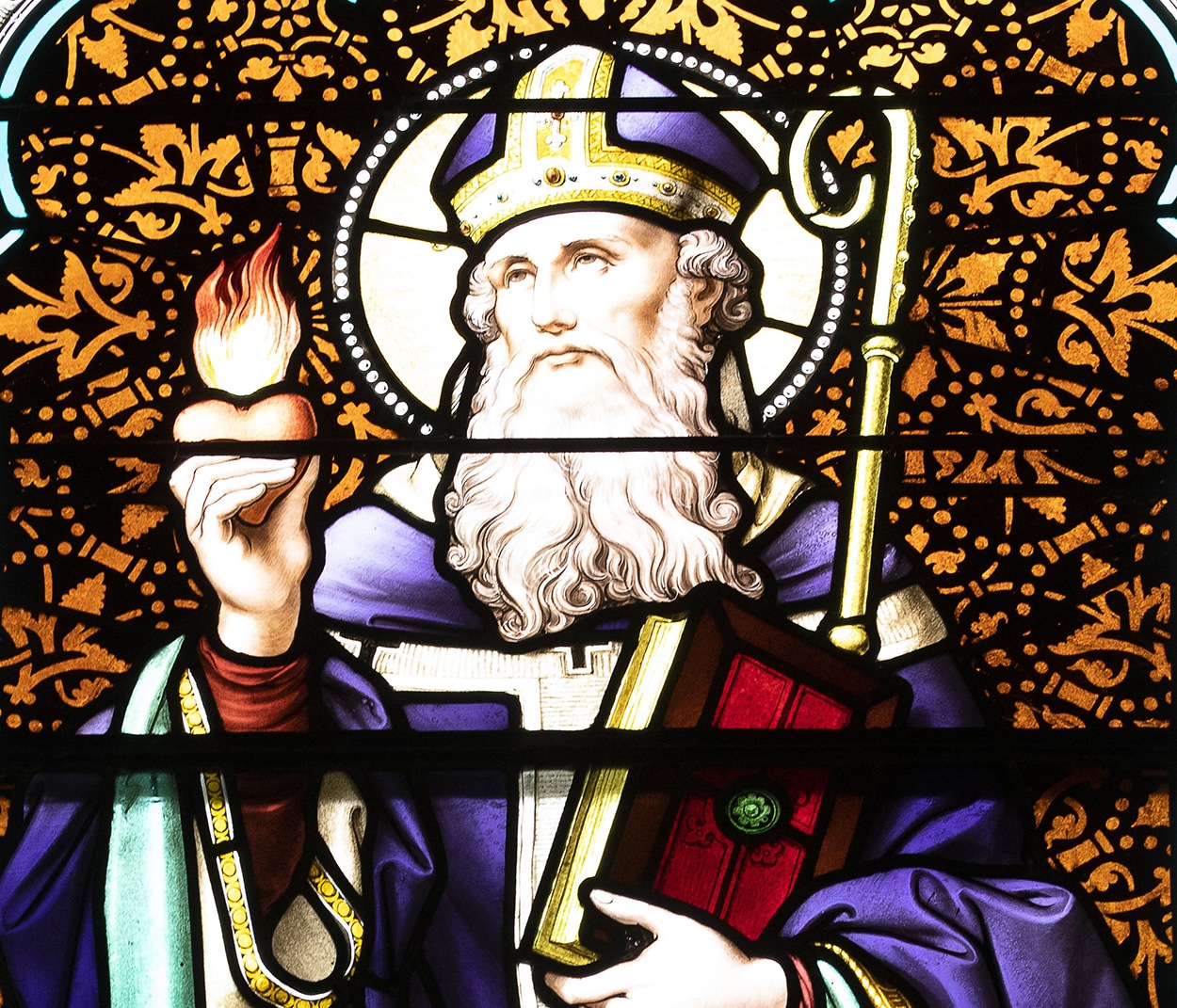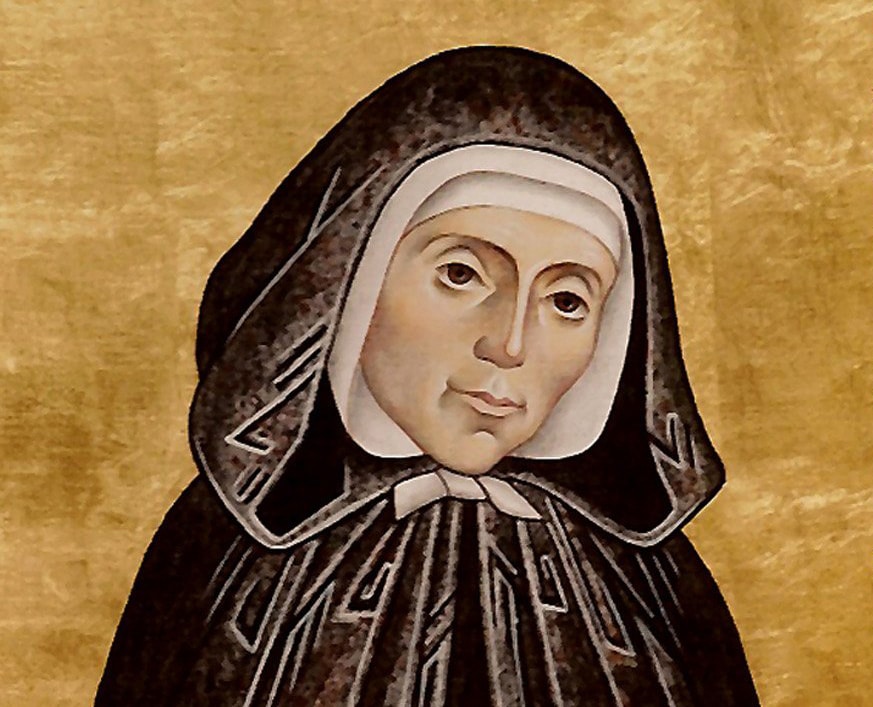St. Maximilian Kolbe, priest and martyr
Feast day: August 14
Described by Pope St. John Paul II as the “Patron Saint of Our Difficult Age,” St. Maximillian Kolbe is known not only for his death at Auschwitz but also for his determination to establish several multimedia communication centers as a means of Catholic evangelization. A Conventual Franciscan friar, he was born in Poland in 1894 and had a profound devotion to the Virgin Mary that he was zealous to share with the world and for which he was described by Pope Paul VI as the “St. Francis of our times.”
With his education, St. Maximillian was appointed professor to the Franciscan seminarians in Kraków. However, ill health prevented him from taking this assignment and he was permitted instead to pursue media outreach. His choice to provide a safe haven for Jewish refugees at a media center in Poland during World War II led to his arrest by the Nazis and his slow death in a concentration camp after offering his life to another prisoner.
“Hail, O Lady, Holy Queen, Mary, holy Mother of God, Who are the Virgin made Church, chosen by the most Holy Father in heaven whom he consecrated with His most holy beloved Son and with the Holy Spirit the Paraclete, in whom there was and is all fullness of grace and every good.” These are the words of St. Francis of Assisi, who inspired St. Maximillian to become a Franciscan priest and also convinced him that the fastest way to become Christ-like was through prayer to the Blessed Mother, spouse of the Holy Spirit and mediatrix of his graces.
At about the age of 10, St. Maximillian Kolbe had a vision of the Virgin Mary, in which she offered him a white crown or a red crown, representing purity and martyrdom respectively. He chose both, a response that foreshadowed his life to come. Despite enduring countless trials involving scruples and doubts during his years of formation, he was strong in prayer and spent many hours before the Blessed Sacrament. Disheartened with how his country was divided by foreign powers, St. Maximillian was determined to work for the unity of all people, as exemplified by his slogan, “Hate is not a creative force: Only love creates.”
To “win the world for Christ through the Immaculata,” St. Maximillian founded the Militia Immaculate (MI), a Catholic evangelization movement that sought to bring people to Jesus through total consecration to the Immaculate Virgin Mary. At first, he saw the need to counteract the militant attitudes of the Freemasons. Despite contracting tuberculosis, he began publishing the monthly magazine, Knight of the Immaculata. Utilizing short-wave radio and planning to build a motion picture studio, he also established two evangelization centers dedicated to the Immaculate Virgin: Niepokalanów, the “City of the Immaculata,” in Poland, and Mugenzai no Sono, “Garden of the Immaculata,” in Japan, and he envisioned missionary centers worldwide. Living in poverty, continuous prayer and penance, he and his fellow friars worked to spread Catholic doctrine particularly concerning the Blessed Mother.
“No one in the world can change Truth. What we can do and should do is to seek truth and to serve it when we have found it,” wrote St. Maximillian Kolbe.
He was arrested by the Nazis in 1941 on charges of aiding Jews and the Polish underground. He had housed, fed and clothed refugees, claiming, “We must do everything in our power to help these unfortunate people who have been driven from their homes and deprived of even the most basic necessities. Our mission is among them in the days that lie ahead.” Eventually deported to Auschwitz, St. Maximillian was given the most humiliating jobs, such as carrying dead bodies to the crematorium. Enduring beatings by the guards, St. Maximillian is noted to have remained charitable and offered to hear the confessions of other prisoners and talk to them about God’s love.
In an act of heroic virtue, St. Maximillian volunteered to be assigned to the starvation bunker in place of another prisoner who was a husband and a father. Eventually, when his cell was needed for new victims, he was given an injection of carbolic acid, and he died on the vigil of Mary’s Assumption. St. Maximillian is known for his insights on Marian theology which influenced the Second Vatican Council and the teaching of both Pope St. John Paul II and Pope Benedict XVI.
Reflection
Dear God, thank you for the gift of your Mother, who brings us closer to you. May we have the courage of St. Maximilian Kolbe to evangelize even in the darkest times and know that you can bring good out of anything.
Prayer
O God, who filled the Priest and Martyr St. Maximilian Kolbe
with a burning love for the Immaculate Virgin Mary
and with zeal for souls and love of neighbor,
graciously grant, through his intercession,
that, striving for your glory by eagerly serving others,
we may be conformed, even until death, to your Son.
Who lives and reigns with you in the unity of the Holy Spirit,
God, for ever and ever.

